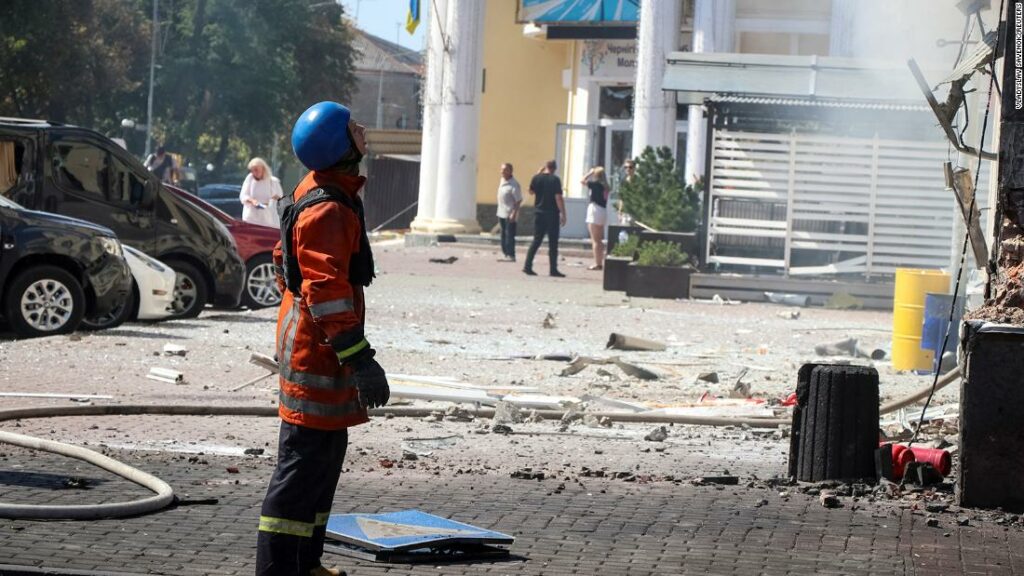Ukrainian President Volodymyr Zelensky and Serbian President Aleksandar Vucic recently held talks during a Ukraine-Balkans summit in Athens. Both leaders emphasized the importance of supporting territorial integrity and sovereignty in their partnership. Zelensky’s office stated that this mutual support is a crucial aspect of the relationship between Ukraine and Serbia. Vucic described the conversation as good and open, addressing significant issues faced by both countries.
During the meeting, Vucic reiterated Serbia’s respect for Ukraine’s territorial integrity, emphasizing that this stance has been clear and unwavering since the beginning of the conflict. Zelensky expressed gratitude for Serbia’s humanitarian assistance and support for Ukrainian refugees who have sought refuge in the country.
To understand the context, it is important to note that Belgrade has historically maintained close ties with Moscow while also seeking closer integration with Europe. Western diplomats have attempted to steer Vucic away from Russian influence by offering a faster path to EU membership. However, some observers argue that this approach has been ineffective, lacking both incentives and consequences.
Despite pressure from the West, Serbia has refused to participate in EU sanctions against Russia. Additionally, the country has pursued its own interests in the region with limited accountability, using conflicts abroad to divert attention from domestic issues. This behavior has gone unchecked by Western powers.
To delve deeper into the West’s approach to Serbia, read more on this topic.
The meeting between Zelensky and Vucic highlights the complex dynamics at play in the region and the challenges faced by both countries. It underscores the need for continued dialogue and cooperation to address shared concerns and promote stability.
Unveiling the Latest Updates on Russia’s War in Ukraine
Introduction:
The ongoing conflict between Russia and Ukraine has been a matter of international concern for several years. The situation in Ukraine has witnessed numerous developments, with both political and military implications. This article aims to provide a comprehensive overview of the latest updates on Russia’s war in Ukraine, shedding light on the current state of affairs and the potential consequences for the region and beyond.
Background:
The conflict in Ukraine began in 2014 when Russia annexed Crimea, a move that was widely condemned by the international community. Since then, fighting has escalated in eastern Ukraine, primarily in the Donetsk and Luhansk regions, where pro-Russian separatists have been battling Ukrainian government forces. The conflict has resulted in thousands of deaths, displacement of civilians, and a severe humanitarian crisis.
Latest Developments:
In recent months, tensions between Russia and Ukraine have reached alarming levels. In April 2021, Russia deployed thousands of troops near the Ukrainian border, raising concerns of a potential full-scale invasion. The buildup of forces, coupled with aggressive rhetoric from Russian officials, has heightened fears of an escalation in the conflict.
Moreover, there have been reports of increased ceasefire violations in eastern Ukraine, with both sides accusing each other of initiating hostilities. Civilians continue to bear the brunt of the conflict, facing constant shelling, lack of access to basic necessities, and limited healthcare services. The situation has been further exacerbated by the COVID-19 pandemic, which has strained Ukraine’s already fragile healthcare system.
International Response:
The international community has closely monitored the situation in Ukraine and has expressed its support for Ukraine’s territorial integrity. The United States and European Union have imposed economic sanctions on Russia in response to its actions in Ukraine. These sanctions aim to exert pressure on Russia to de-escalate the conflict and engage in peaceful negotiations.
Efforts to Resolve the Conflict:
Various diplomatic initiatives have been undertaken to find a peaceful resolution to the conflict. The Minsk agreements, signed in 2014 and 2015, aimed to establish a ceasefire and a framework for a political settlement. However, the implementation of these agreements has been challenging, with both sides accusing each other of non-compliance.
The Normandy Format, which includes Ukraine, Russia, Germany, and France, has also been instrumental in facilitating negotiations. However, progress has been slow, and a lasting solution remains elusive. The recent escalation in tensions has further complicated the prospects for a peaceful resolution.
Potential Consequences:
The continuation of the conflict in Ukraine has far-reaching implications for the region and beyond. It poses a threat to regional stability and has strained relations between Russia and Western countries. The conflict has also fueled separatist sentiments in other parts of Ukraine, such as the Transnistria region, which could potentially lead to further territorial disputes.
Furthermore, the humanitarian crisis in Ukraine requires urgent attention. The international community must provide assistance to alleviate the suffering of civilians affected by the conflict. Efforts should focus on ensuring access to basic necessities, healthcare services, and facilitating the safe return of displaced persons.
Conclusion:
The situation in Ukraine remains highly volatile, with the potential for further escalation. The international community must continue to exert pressure on Russia to de-escalate the conflict and engage in meaningful negotiations. Efforts should be made to address the humanitarian crisis and find a lasting solution that respects Ukraine’s territorial integrity. Only through diplomatic means and international cooperation can a peaceful resolution be achieved, bringing stability and prosperity to the region.








